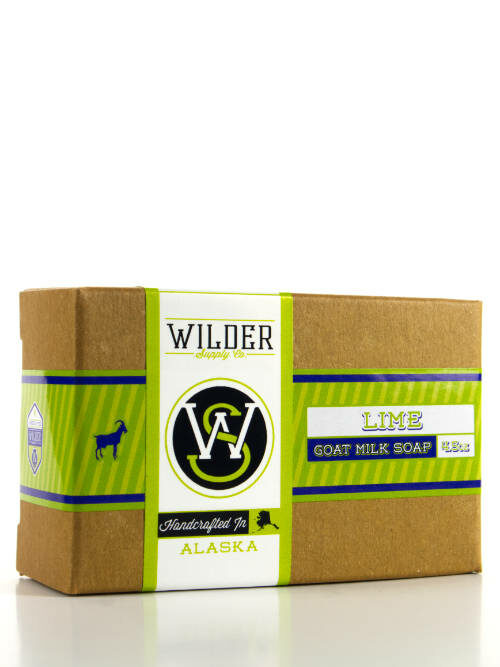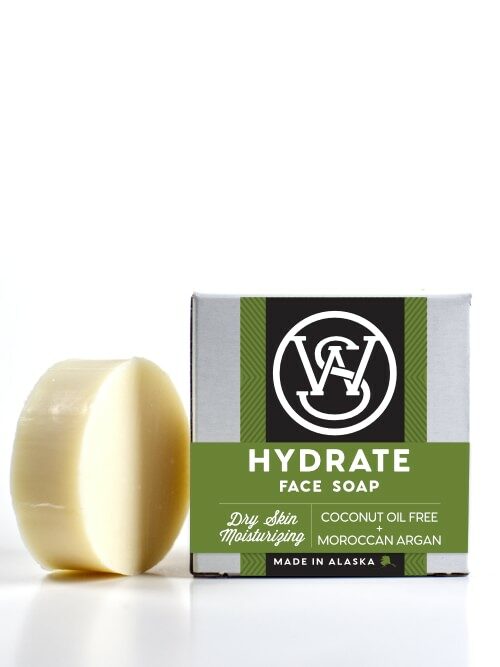Table of Contents
The dangers of using commercial soaps has probably never crossed your mind. After all, its only job is to clean your skin. But if you want to avoid skin irritation and dryness, it’s time to ditch your chemical-laden soap!
1. Commercial soap is made with harmful ingredients.

Have you considered that your soap might be loaded with harmful ingredients? I’m not merely talking about synthetic ingredients but the natural ones as well. Yes, even ingredients derived from “natural” sources can be very damaging to your health. Some naturally derived ingredients can also be processed chemicals (synthetic).
An example would be Ethanol, typically derived from corn, which is definitely hazardous. That’s an extreme case that doesn’t apply to skincare. So lets quickly look at a few examples of toxic ingredients to avoid.
SLES
SLES is a synthetic surfactant that’s commonly used in commercial soaps, shampoos and cleaners. While it may make your suds look nicer, the truth is that it can be harmful for your skin. – but why is it bad? It is derived from ethoxylated Dodecanol alcohol and used as a surfactant, but it may be contaminated with 1,4-dioxane (a Carcinogen). Federal law does not require manufactures to remove 1,4-dioxane but the FDA merely “encourages” it’s removal. How nice.
Tetrasodium EDTA
Tetrasodium Etidronate is not a necessarily a highly toxic substance. According to EWG Skin Deep, it does not appear to have any major irritation or organ toxicity issues if used within the recommended amounts. According to Pubmed:
Clinical tests reported no absorption of an EDTA salt through the skin. These ingredients are likely, however, to affect the passage of other chemicals into the skin because they will chelate calcium.
Because of the potential to increase the penetration of other chemicals, formulators should continue to be aware of this when combining these ingredients with ingredients that previously have been determined to be safe, primarily because they were not significantly absorbed.
Rebecca S Lanigan, Torill A Yamarik
Tetrasodium EDTA in essence, is a Trojan horse for other harmful chemicals to enter through the skin.
Propylene Glycol
Propylene Glycol is in EVERYTHING! Well, not everything but it’s in a ton of stuff we use everyday. According to some studies, PG is painted as this harmless substance when used in small amounts. How much is considered a small amount when it’s in soap, deodorant, toothpaste, lip balm, makeup and the list goes on. That’s not even mentioning the food you eat. Yes, Propylene Glycol is added to your salad dressing, cake, ice cream, drinks, etc.
According to DR Axe, too much PG can cause skin irritation and neurological issues. Similar to Tetrasodium EDTA, PG allows other toxins to absorb more easily into the bloodstream. Infants also have a harder breaking down PG.
This is a very small list of harmful ingredients used, not only in commercial soap, but skincare and makeup. I didn’t even list all of the negative effects these can have because there may not be enough studies to provide proof.
Even though soap is a wash-off product, it is clear that your body is still capable of absorbing harmful chemicals.
Handcrafted soap uses natural ingredients
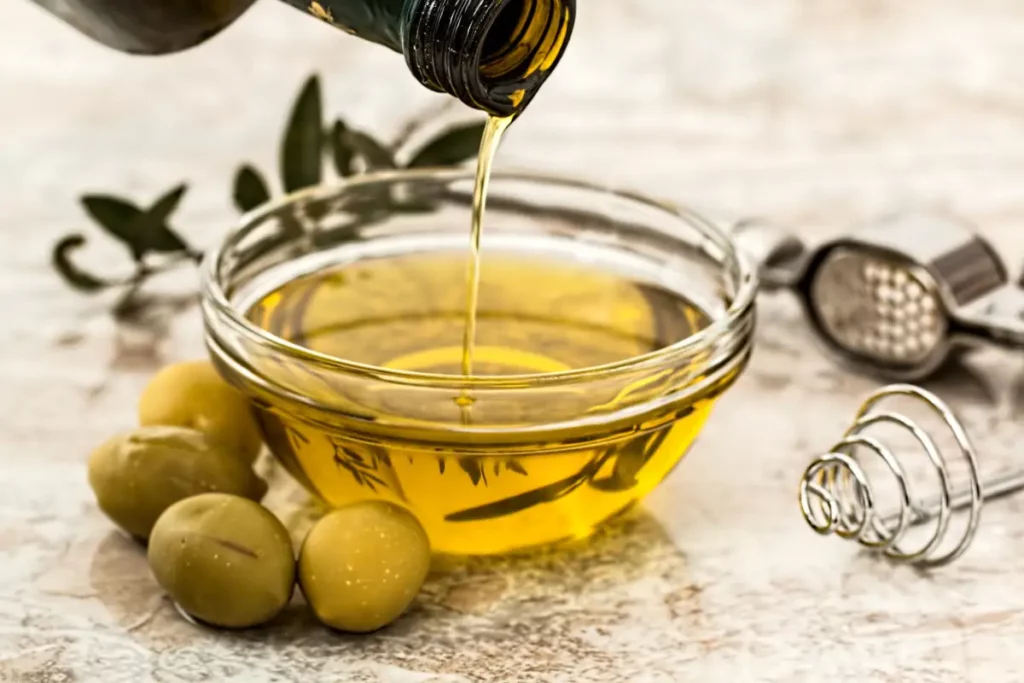
To the contrary, cold process soap is made using vegetable, nut and fruit oils, such as Coconut, Sunflower, Olive, Palm, Grapeseed, etc.. Nothing even remotely controversial here.
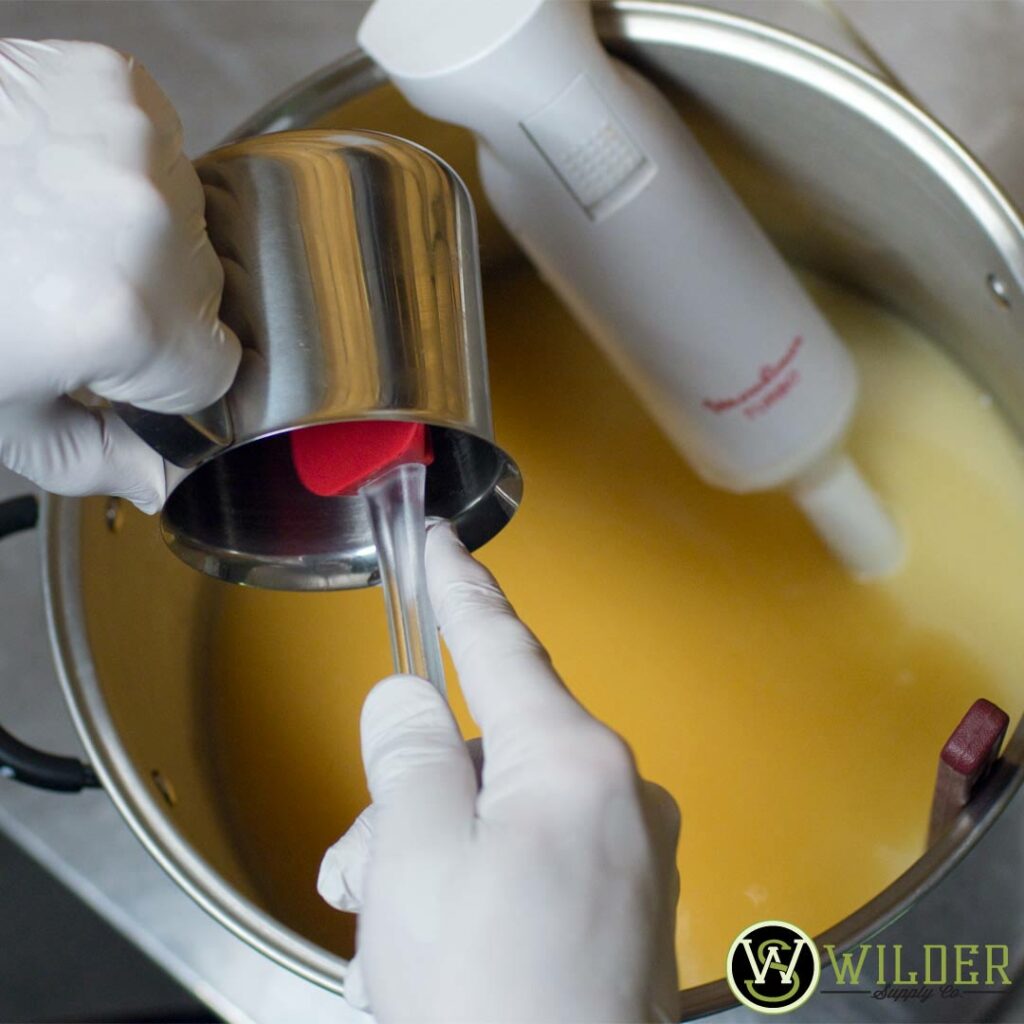
Soap was traditionally made using animal fats, such as Goat milk, Lard and Tallow. Commercially made soap no longer contains any animal-derived ingredients. We continue the old fashioned methods of soap-making with our Goat milk soap.
2. Fragrance oils abound

It’s just a scent right? Not entirely true. What makes up those lovely smells? Fragrance oils are loaded with dangerous, synthetic chemical compounds. There are too many compounds to list here, but a few notable ones are:
- Phthalates
- Dioxane (remember this one from earlier?)
- Propyl Paraben
- Styrene
Just like with SLES, EDTA and PG, excessive use is where fragrance oils start causing problems. I feel like a broken record, but this stuff is in more things than you realize so it is easy to overdo it.
Yes, they do smell nice but what they do to your skin is not so nice. Contact dermatitis (irritation, rashes), headaches and even cancer causing according to https://naturalnicheperfume.com/blog/side-effects-of-chemical-perfumes/
Beware!
Fragrance oils are not exclusive to commercially made soaps. Handcrafters often use them as well.
How can you tell if a product has fragrance oils? Scents like:
- Blueberry
- Strawberry
- Cotton candy
- Caramel
These can not be pressed, distilled or extracted from the plant/source and made into an essential oil.
3. The Natural Glycerin is removed
Glycerin is a humectant that attracts water to the skin . Unlike other oils that sit on the outer layer of the skin, glycerin soaks deep into the skin. This slows down water evaporation, which causes dryness.
Glycerin is a natural byproduct of the soap-making process. It is usually removed from commercially made soap and instead, used in other cosmetic and personal care products. Unfortunately, the removal of glycerin from soap has two downsides.
1. When glycerin is removed from soap, it can leave the skin feeling dry and irritated, especially in people with sensitive skin. This can lead to a host of skin issues, including rashes, itching, and even eczema.
2. Additionally, the synthetic ingredients that are often used to replace glycerin in commercial soap products can be even harmful to the skin. Diethylene glycol and propylene glycol are both common replacements for glycerin.
Propylene glycol is predominantly produced from natural gas, whereas glycerin is a byproduct of vegetable or animal fats during the saponification process.
4. Commercial soap is harsh on your skin
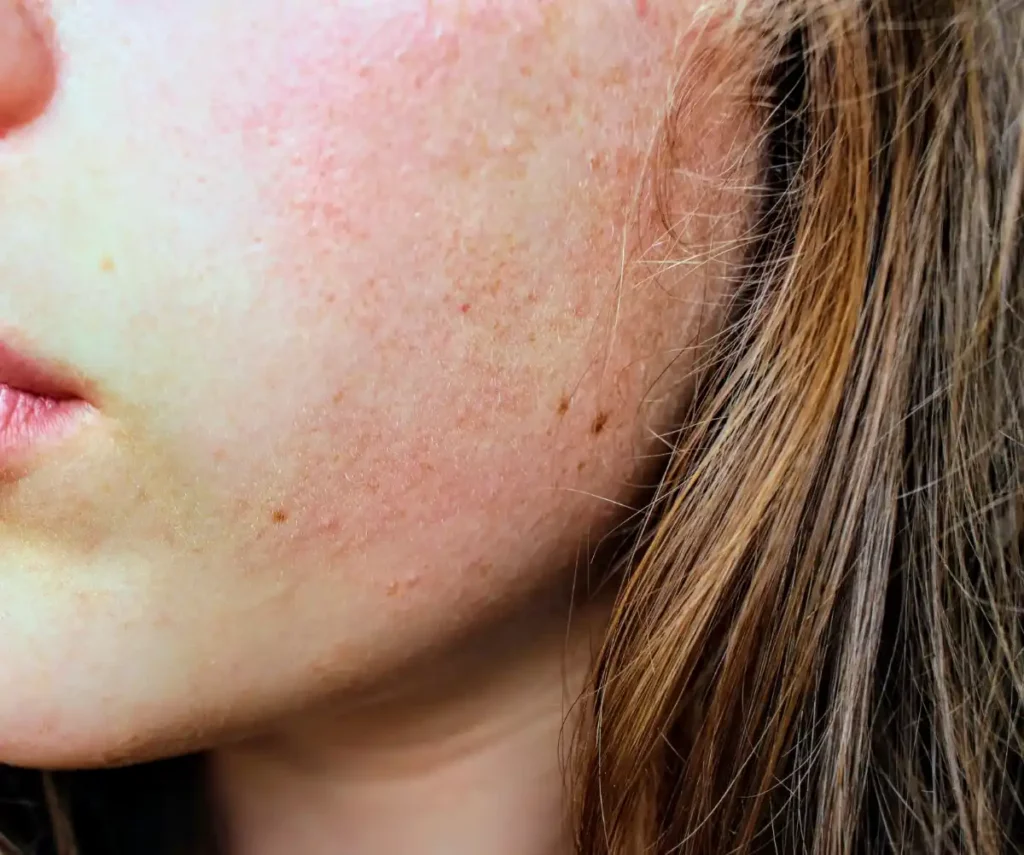
Remember that nasty SLES stuff we talked about earlier? Well, it strips your skin of the natural oils that lay on the surface of your skin (epidermis). When your epidermis doesn’t have any protection, water evaporates from your skin rapidly. This will cause your skin to dry out.
Dry skin can cause eczema to flare up. Eczema is a type of dermatitis. It is a skin condition that causes inflammation, itchiness, dryness, redness, rashes, scaly patches, blisters and skin infections.
A lot of the synthetic ingredients used in commercial soap are irritating to the skin. Some are GRAS (generally recognized as safe) but in larger concentrations may cause more severe irritation. So a little bit of surfactant, fragrance, preservative, and artificial color all add up. Long term exposure to these substances can be sensitizing. That’s a fancy way of saying that you may not notice any negative effects right away but months or years down the road you may develop contact dermatitis.
What is contact dermatitis?
In short, it is a type of rash that is caused by an inflammatory reaction when your skin comes into contact with certain substances. The symptoms of contact dermatitis can range from mild to severe, and include itching, swelling, redness, and even blisters. This is your body’s way of saying “HEY, somethings wrong!”.
Some of the most popular treatments for dermatitis include a topical corticosteroids, which can have some pretty bad side effects. While this may be necessary at some point, simply avoiding the synthetic ingredients that cause these reactions in the first place seems wise.
Conclusion
I hope we didn’t scare you too bad! That was not the intent. We merely want you to be aware of what is inconspicuously lurking in that elegant, perfectly milled-smooth bar of what is masquerading as soap.
There are no beneficial properties to a commercial soap bar, only the potential for negative side effects. What we don’t know is how harmful some of these “safe” compounds really are. For instance, Talc is still seen as being safe to use to color pills despite the J&J baby powder debacle. 10 or 20 years down the road, what kind of studies are going to emerge saying that those “safe” substances really caused cancer? oops. Too little, too late.
While some synthetic ingredients appear much worse than others, it really comes down to this; Why use a soap that is made from synthetic compounds when it is just as easy to use a soap made with real, natural ingredients? The feel and smell might take some getting used to, but there is very little controversy surrounding oils like Coconut, Olive, Sunflower, etc.
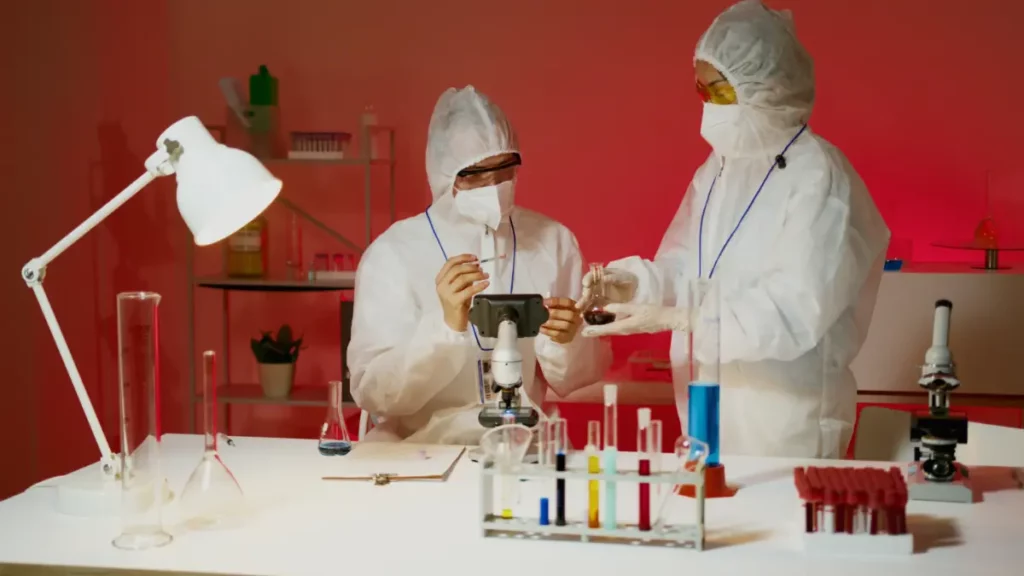

-
 Lime Goat Milk Soap$8.50 – $47.00
Lime Goat Milk Soap$8.50 – $47.00 -
 Hydrate Face Soap$12.00
Hydrate Face Soap$12.00 -
 Fragrance Free Goat Milk Soap$8.50 – $47.00
Fragrance Free Goat Milk Soap$8.50 – $47.00
*All information provided on this page is for educational purposes only. These statements have not been evaluated by the Food and Drug Administration. Any products or content in this article are not intended to diagnose, treat, cure, or prevent any disease.

